 Lyndon Johnson’s advisers were worried. They were drafting a Medicare proposal, a major component of Johnson’s war on poverty. But the cost of this program was turning out to be much larger than expected. By their estimates, in the first year alone, they would face $400 million more in expenditures than they had budgeted for. The advisers asked Johnson what the administration should do, and Johnson replied: “Well, I guess I’ll run and get my brother.” That answer didn’t make sense to his aides, of course. So he continued:
Lyndon Johnson’s advisers were worried. They were drafting a Medicare proposal, a major component of Johnson’s war on poverty. But the cost of this program was turning out to be much larger than expected. By their estimates, in the first year alone, they would face $400 million more in expenditures than they had budgeted for. The advisers asked Johnson what the administration should do, and Johnson replied: “Well, I guess I’ll run and get my brother.” That answer didn’t make sense to his aides, of course. So he continued:
“Well, I remember one time they were giving a test to a fellow who was going to be a switch man on the railroad, giving him an intelligence test, and they said, ‘What would you do if a train was coming east going 60 mph, and you looked over your shoulder and another one was coming from the west going 60 mph?’ And the fellow said, ‘I’d go get my brother.’ And they said, ‘Why would you get your brother?’ And he said, ‘Because he hasn’t ever seen a train wreck.’”
Johnson was famous for using colorful yarns to calm his colleagues. When his colleagues pushed back on the cost of the impending legislation, he replied with another folksy story that put an end to any discussion of foregoing the legislation… (Read more and view comments at Forbes)
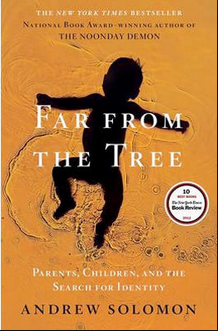 A quote from Far From the Tree I thought I’d share:
A quote from Far From the Tree I thought I’d share:
 The New Yorker recently published a very
The New Yorker recently published a very  Read the following quote, and try to guess which U.S. president made this statement:
Read the following quote, and try to guess which U.S. president made this statement: I
I Lyndon Johnson’s advisers were worried. They were drafting a Medicare proposal, a major component of Johnson’s war on poverty. But the cost of this program was turning out to be much larger than expected. By their estimates, in the first year alone, they would face $400 million more in expenditures than they had budgeted for. The advisers asked Johnson what the administration should do, and Johnson replied: “Well, I guess I’ll run and get my brother.” That answer didn’t make sense to his aides, of course. So he continued:
Lyndon Johnson’s advisers were worried. They were drafting a Medicare proposal, a major component of Johnson’s war on poverty. But the cost of this program was turning out to be much larger than expected. By their estimates, in the first year alone, they would face $400 million more in expenditures than they had budgeted for. The advisers asked Johnson what the administration should do, and Johnson replied: “Well, I guess I’ll run and get my brother.” That answer didn’t make sense to his aides, of course. So he continued: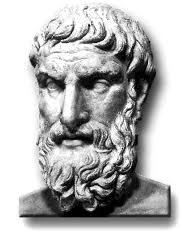 I have conducted a
I have conducted a 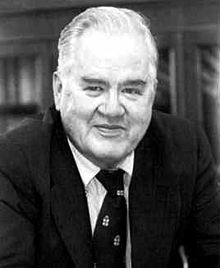 If you ever want to know why one is the loneliest number, consider the words of John Tukey, a prominent American mathematician from the 20th century. Not the most socially adept person in the world, he relied heavily on his wife Elizabeth to help them live a normal life. When she died in 1998 Tukey tersely described the pain he was feeling, and put it into terms that he, as a mathematician, could relate to so profoundly. He said: “One is so much less than two.”
If you ever want to know why one is the loneliest number, consider the words of John Tukey, a prominent American mathematician from the 20th century. Not the most socially adept person in the world, he relied heavily on his wife Elizabeth to help them live a normal life. When she died in 1998 Tukey tersely described the pain he was feeling, and put it into terms that he, as a mathematician, could relate to so profoundly. He said: “One is so much less than two.”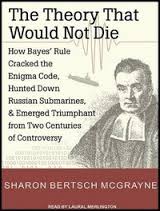 In The Theory That Would Not Die, Sharon Bertsch McGrayne brings to life many famous scientists and statisticians, the one of the moments that struck me most was when she described one of those people as he faced his death. That person was Jerome Cornfield, a prominent statistician at the NIH. Cornfield had been diagnosed with pancreatic cancer, and understood that he would be lucky if he lived more than six months. He had just undergone an operation to remove his cancer, a procedure known to be about as miserable to go through as any I’ve encountered, and one with a high operative mortality rate. A friend came into his hospital room and said: “Jerry, I’m so glad to see you.” Smiling, Cornfield replied, “That’s nothing compared to how happy I am to be able to see you.”
In The Theory That Would Not Die, Sharon Bertsch McGrayne brings to life many famous scientists and statisticians, the one of the moments that struck me most was when she described one of those people as he faced his death. That person was Jerome Cornfield, a prominent statistician at the NIH. Cornfield had been diagnosed with pancreatic cancer, and understood that he would be lucky if he lived more than six months. He had just undergone an operation to remove his cancer, a procedure known to be about as miserable to go through as any I’ve encountered, and one with a high operative mortality rate. A friend came into his hospital room and said: “Jerry, I’m so glad to see you.” Smiling, Cornfield replied, “That’s nothing compared to how happy I am to be able to see you.”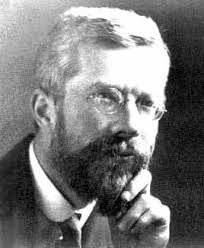 I recently read Sharon Bertsch McGrayne’s The Theory That Would Not Die, which recounts the controversial history of Bayes theorem in the world of statistics. To oversimplify quite a bit, Bayes theorem requires those using it to make an initial guess about, say, the probability that one outcome is more likely than another, and then the theorem helps them revise this probability estimate as new data comes in. Many statisticians hate this idea of starting with “a guess.” One such statistician is the very colorful, and very famous, R.A. Fisher, whom McGrayne described thusly in her book:
I recently read Sharon Bertsch McGrayne’s The Theory That Would Not Die, which recounts the controversial history of Bayes theorem in the world of statistics. To oversimplify quite a bit, Bayes theorem requires those using it to make an initial guess about, say, the probability that one outcome is more likely than another, and then the theorem helps them revise this probability estimate as new data comes in. Many statisticians hate this idea of starting with “a guess.” One such statistician is the very colorful, and very famous, R.A. Fisher, whom McGrayne described thusly in her book: